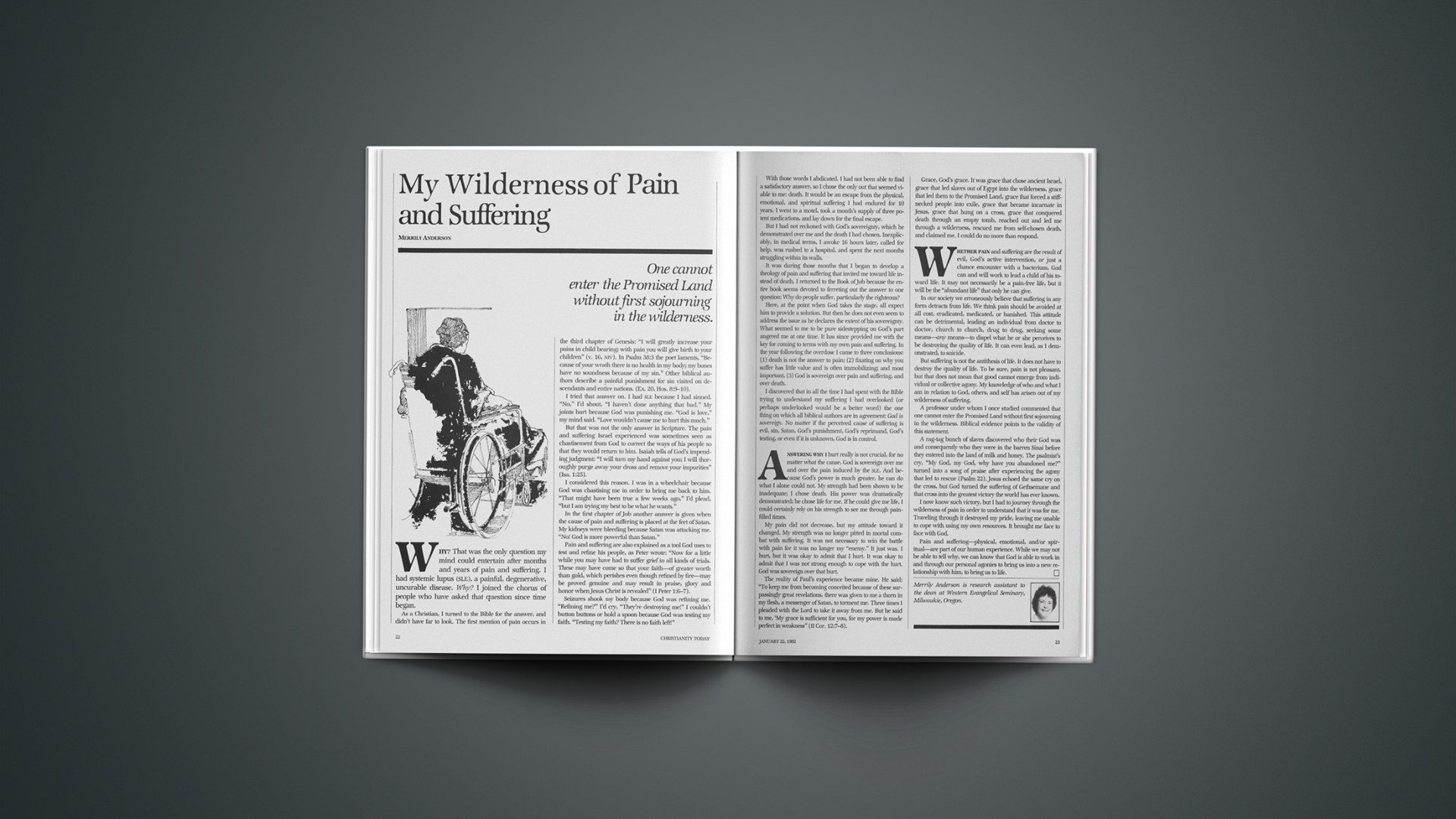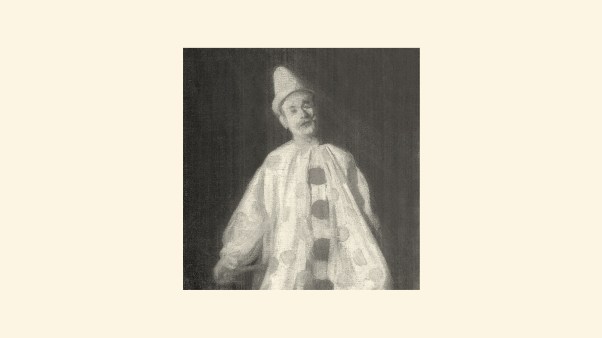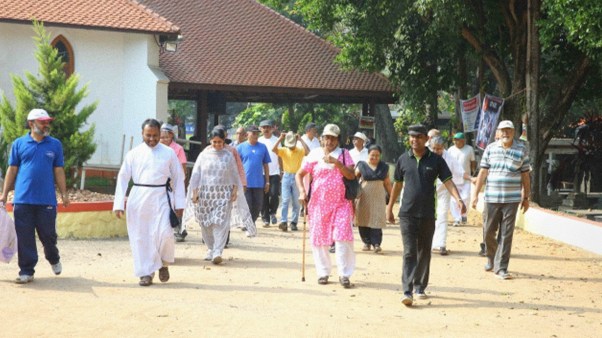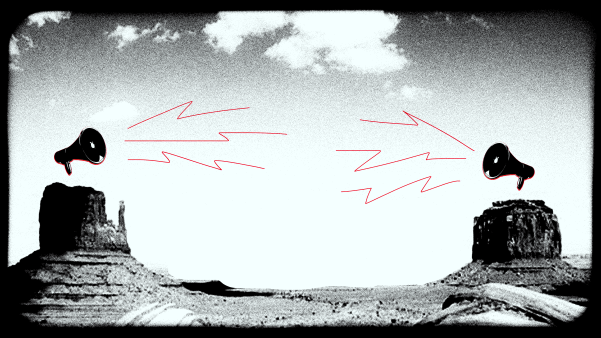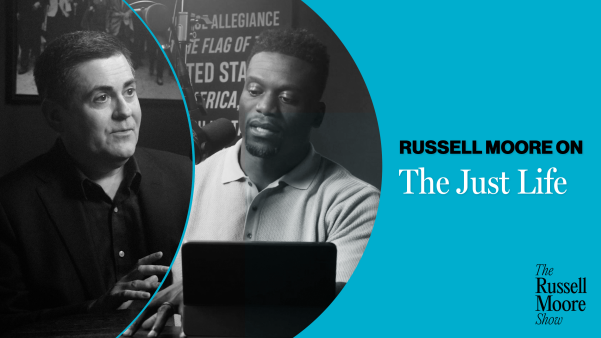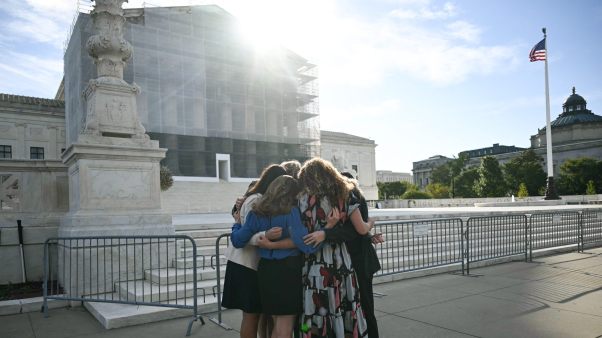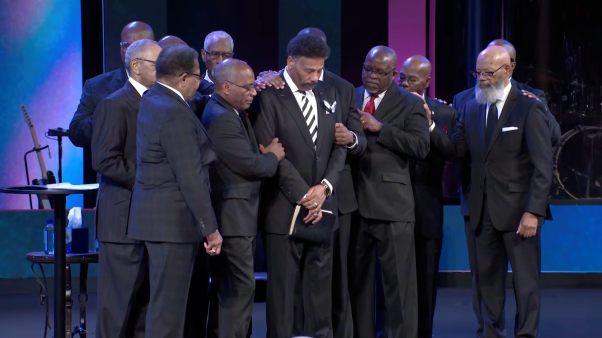One cannot enter the Promised Land without first sojourning in the wilderness.
Why? That was the only question my mind could entertain after months and years of pain and suffering. I had systemic lupus (SLE), a painful, degenerative, uncurable disease. Why? I joined the chorus of people who have asked that question since time began.
As a Christian, I turned to the Bible for the answer, and didn’t have far to look. The first mention of pain occurs in the third chapter of Genesis: “I will greatly increase your pains in child bearing; with pain you will give birth to your children” (v. 16, NIV). In Psalm 38:3 the poet laments, “Because of your wrath there is no health in my body; my bones have no soundness because of my sin.” Other biblical authors describe a painful punishment for sin visited on descendants and entire nations. (Ex. 20; Hos. 8:9–10).
I tried that answer on. I had SLE because I had sinned. “No,” I’d shout, “I haven’t done anything that bad.” My joints hurt because God was punishing me. “God is love,” my mind said. “Love wouldn’t cause me to hurt this much.” But that was not the only answer in Scripture. The pain and suffering Israel experienced was sometimes seen as chastisement from God to correct the ways of his people so that they would return to him. Isaiah tells of God’s impending judgment: “I will turn my hand against you; I will thoroughly purge away your dross and remove your impurities” (Isa. 1:25).
I considered this reason. I was in a wheelchair because God was chastising me in order to bring me back to him. “That might have been true a few weeks ago,” I’d plead, “but I am trying my best to be what he wants.”
In the first chapter of Job another answer is given when the cause of pain and suffering is placed at the feet of Satan. My kidneys were bleeding because Satan was attacking me. “No! God is more powerful than Satan.”
Pain and suffering are also explained as a tool God uses to test and refine his people, as Peter wrote: “Now for a little while you may have had to suffer grief in all kinds of trials. These may have come so that your faith—of greater worth than gold, which perishes even though refined by fire—may be proved genuine and may result in praise, glory and honor when Jesus Christ is revealed” (1 Peter 1:6–7).
Seizures shook my body because God was refining me. “Refining me?” I’d cry, “They’re destroying me!” I couldn’t button buttons or hold a spoon because God was testing my faith. “Testing my faith? There is no faith left!”
With those words I abdicated. I had not been able to find a satisfactory answer, so I chose the only out that seemed viable to me: death. It would be an escape from the physical, emotional, and spiritual suffering I had endured for 10 years. I went to a motel, took a month’s supply of three potent medications, and lay down for the final escape.
But I had not reckoned with God’s sovereignty, which he demonstrated over me and the death I had chosen. Inexplicably, in medical terms, I awoke 16 hours later, called for help, was rushed to a hospital, and spent the next months struggling within its walls.
It was during those months that I began to develop a theology of pain and suffering that invited me toward life instead of death. I returned to the Book of Job because the entire book seems devoted to ferreting out the answer to one question: Why do people suffer, particularly the righteous?
Here, at the point when God takes the stage, all expect him to provide a solution. But then he does not even seem to address the issue as he declares the extent of his sovereignly. What seemed to me to be pure sidestepping on God’s part angered me at one time. It has since provided me with the key for coming to terms with my own pain and suffering. In the year following the overdose I came to three conclusions: (1) death is not the answer to pain; (2) fixating on why you suffer has little value and is often immobilizing; and most important, (3) God is sovereign over pain and suffering, and over death.
I discovered that in all the time I had spent with the Bible trying to understand my suffering I had overlooked (or perhaps underlooked would be a better word) the one thing on which all biblical authors are in agreement: God is sovereign. No matter if the perceived cause of suffering is evil, sin, Satan, God’s punishment, God’s reprimand, God’s testing, or even if it is unknown, God is in control.
Answering why i hurt really is not crucial, for no matter what the cause, God is sovereign over me and over the pain induced by the SLE. And because God’s power is much greater, he can do what I alone could not. My strength had been shown to be inadequate; I chose death. His power was dramatically demonstrated; he chose life for me. If he could give me life, I could certainly rely on his strength to see me through pain-filled times.
My pain did not decrease, but my attitude toward it changed. My strength was no longer pitted in mortal combat with suffering. It was not necessary to win the battle with pain for it was no longer my “enemy.” It just was. I hurt, but it was okay to admit that I hurt. It was okay to admit that I was not strong enough to cope with the hurt. God was sovereign over that hurt.
The reality of Paul’s experience became mine. He said: “To keep me from becoming conceited because of these surpassingly great revelations, there was given to me a thorn in my flesh, a messenger of Satan, to torment me. Three times I pleaded with the Lord to take it away from me. But he said to me, ‘My grace is sufficient for you, for my power is made perfect in weakness” (2 Cor. 12:7–8).
Grace, God’s grace. It was grace that chose ancient Israel, grace that led slaves out of Egypt into the wilderness, grace that led them to the Promised Land, grace that forced a stiff-necked people into exile, grace that became incarnate in Jesus, grace that hung on a cross, grace that conquered death through an empty tomb, reached out and led me through a wilderness, rescued me from self-chosen death, and claimed me. I could do no more than respond.
Whether pain and suffering are the result of evil, God’s active intervention, or just a chance encounter with a bacterium, God can and will work to lead a child of his toward life. It may not necessarily be a pain-free life, but it will be the “abundant life” that only he can give.
In our society we erroneously believe that suffering in any form detracts from life. We think pain should be avoided at all cost, eradicated, medicated, or banished. This attitude can be detrimental, leading an individual from doctor to doctor, church to church, drug to drug, seeking some means—any means—to dispel what he or she perceives to be destroying the quality of life. It can even lead, as I demonstrated, to suicide.
But suffering is not the antithesis of life. It does not have to destroy the quality of life. To be sure, pain is not pleasant, but that does not mean that good cannot emerge from individual or collective agony. My knowledge of who and what I am in relation to God, others, and self has arisen out of my wilderness of suffering.
A professor under whom I once studied commented that one cannot enter the Promised Land without first sojourning in the wilderness. Biblical evidence points to the validity of this statement.
A rag-tag bunch of slaves discovered who their God was and consequently who they were in the barren Sinai before they entered into the land of milk and honey. The psalmist’s cry, “My God, my God, why have you abandoned me?” turned into a song of praise after experiencing the agony that led to rescue (Psalm 22). Jesus echoed the same cry on the cross, but God turned the suffering of Gethsemane and that cross into the greatest victory the world has ever known.
I now know such victory, but I had to journey through the wilderness of pain in order to understand that it was for me. Traveling through it destroyed my pride, leaving me unable to cope with using my own resources. It brought me face to face with God.
Pain and suffering—physical, emotional, and/or spiritual—are part of our human experience. While we may not be able to tell why, we can know that God is able to work in and through our personal agonies to bring us into a new relationship with him, to bring us to life.
Merrily Anderson is research assistant to the dean at Western Evangelical Seminary, Milwaukie, Oregon.

